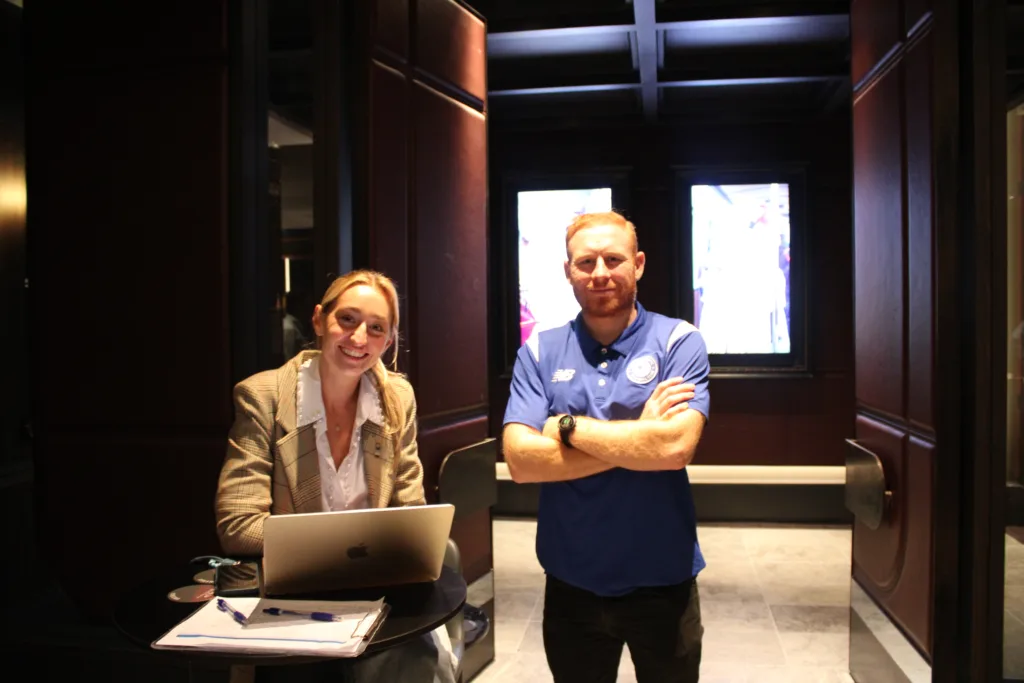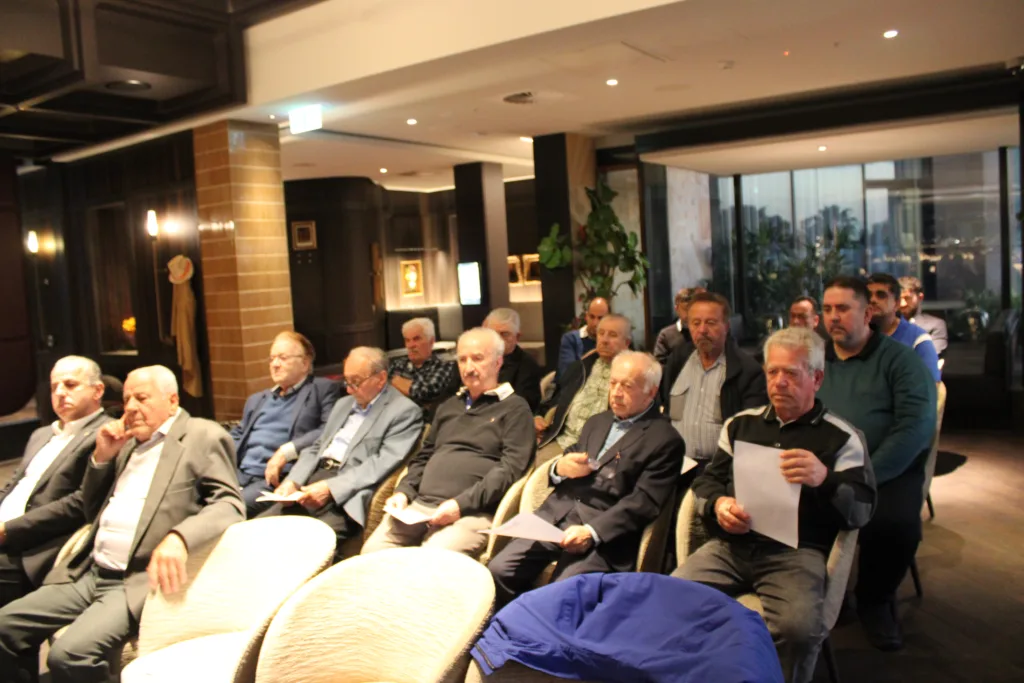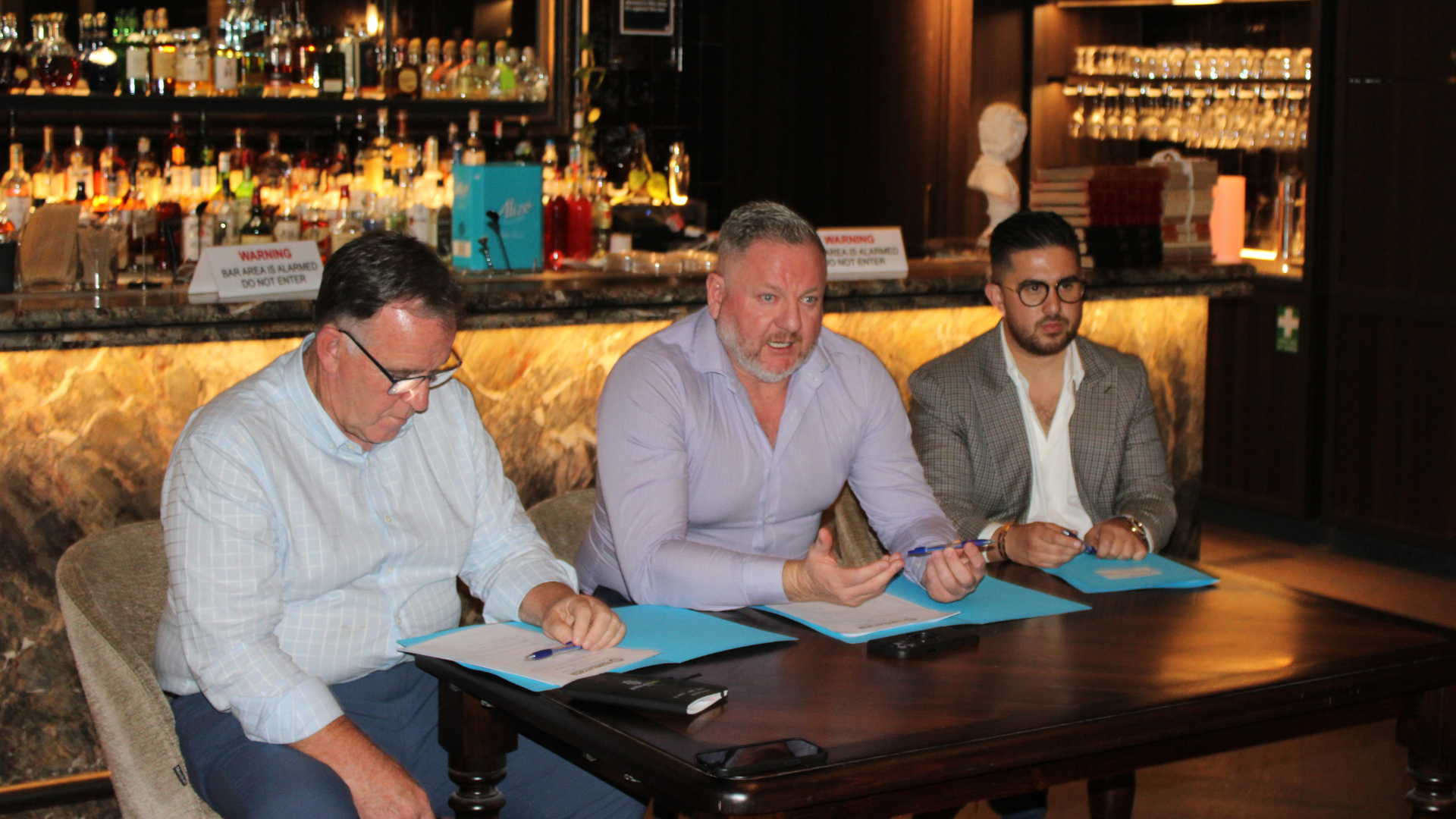Sydney Olympic Football Club (SOFC) held its Annual General Meeting (AGM) on Tuesday, October 1, 2024, at the Canterbury Leagues Club. Although the meeting was conducted in a civil and supportive atmosphere, concerns about the club’s financial future cast a shadow over the proceedings.
President Damon Hanlin (Hatzimanolis) presented the annual report and discussed the club’s performance over the past 12 months. He emphasised that the focus during this period has been on cultivating talent from grassroots programmes to the Skills Acquisition Program (SAP). Hanlin explained that the club had implemented coaching initiatives and developed additional programmes outside of the club to foster and nurture emerging talent.
Hanlin also highlighted the success of the women’s programme, which has been a bright spot for the club. He praised the dedication of the coaching staff and players, noting their impressive recent performances.
While these efforts have started to yield positive results, Hanlin acknowledged some growing financial challenges. Expressing frustration over the club’s financial position, he indicated that despite his investment of $1.8 million over the past financial year, the club remains financially unsustainable due to insufficient income streams.

“From a financial perspective, it’s been a tough year… business conditions for the general economy are as tough as they’ve ever been. Football, as a result of that, suffers,” he explained.
Hanlin emphasised the urgent need for increased financial contributions from the community and sponsors to secure the club’s future. He hinted that if the club’s financial situation didn’t improve in the coming months, he would not be able to sustain it for much longer and would “walk away.”
Addressing rumours about player payments, Hanlin confirmed that the club had experienced delays, with some payments falling behind. However, he reassured members that all outstanding payments had now been brought up to date.
During his address, he informed members of an inherited tax debt of around $400,000, which had now been cleared, and emphasised the difficult position the club was left in following the sudden departure of former President Bill Pappas.
The president also discussed the challenge of uniting the community, lamenting the lack of support from Steve Kamper, the New South Wales Minister for Sport and Multiculturalism. Despite his position, the club has struggled to gain Mr Kamper’s backing, and this lack of support is compounded by the club’s challenges in attracting new memberships.
It was announced that Labinot Haliti will remain as the men’s first-grade coach for the upcoming season, and a new coach for the women’s team has been appointed from the Gladesville Ravens.

The board noted that it was exploring alternative training facilities to replace Peter Moore Field in Belmore, following the Bulldogs’ announcement to begin construction on their Centre of Excellence. One option being considered is Netstrata Jubilee Stadium.
Hanlin and CEO Lawrie McKinna later informed members about the future of the National Second Tier (NST), offering some hope with updates on discussions with Football Australia (FFA). They explained that despite some clubs undermining the competition, the FFA remains committed, describing the NST as having a “strong heartbeat.” However, challenges are preventing its launch in the originally planned format for 2025. While the competition name has been confirmed, doubts persist about the kick-off timeline, with concerns that the initial target of 2025 may be pushed to 2026 due to other clubs withdrawing and not feeling prepared.
McKinna also noted that the FFA is considering expanding the league by opening the application process to additional clubs, particularly from Queensland and other regions, aiming to add four more teams for a total of twelve. However, financial difficulties, especially securing a bank guarantee of $500,000, remain a significant hurdle for many clubs hoping to join the NST.
During the meeting, members were asked to vote on approving the club’s financial statements, changing the financial year at the request of Football New South Wales, and proceeding with the NST.
Despite unanimous agreement from members, the financial realities loom large.
By the conclusion of the meeting, the underlying message was clear: Sydney Olympic FC faces an uphill battle to secure its financial future. Members left the AGM with a mix of optimism for future development and deep concerns over financial sustainability and community engagement.
